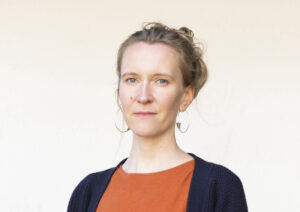
Weekly Research Seminar with Kiri Olivia Santer (University of Bern)
15 marca 2024 | Karolina Dziubata
The anthropology of accountability in migration control: an analysis of cooperative deterrence in the Mediterranean
(Tuesday, 26.03.2024, 09:30-11:00, room 2.122)
The legal complexification of migration control policies and the transnational involvement of more and more actors across jurisdictions, has rendered accountability for human rights violations across borders, elusive. In the Central Mediterranean, people on the move face shrinking access to legal asylum procedures and ever-expanding extraterritorial migration control measures. In a deterrence paradigm designed to keep migrants and refugees from ever reaching jurisdictions in the global North, the accountability gap in migration control is raising more and more concern from scholars and practitioners alike. These discussions are dominated by legal scholars who examine the accountability gap by analysing international EU and domestic law, integrating various geographical perspectives on human rights violations and their available remedies. However, beyond the doctrinal perspective of how externalised migration control violates the law, what is often missing, is an understanding of how accountability gaps are produced. In this presentation, I discuss what an anthropological approach to the study of responsibility for refugees at sea can bring to the discussion. Through examples taken from my research on cooperative deterrence in the Mediterranean, I argue that a multi-sited, multi-levelled approach to the analysis of migration control sheds light on the social and judicial practices from various European officials that contribute to elusive accountability for refugees at the borders of Europe. The anthropology of accountability involves tracing the mismatch between the borders of state, territory, law, and politics.
Kiri Santer is a post-doctoral researcher and lecturer at the Institute of Social Anthropology, currently working on a new project that will track the implementations of reforms being carried out on the European Union’s emissions trading system, with a focus on the Carbon Border Adjustment Mechanism (CBAM). Her research examines the ways in which policy and industry actors navigate the dual requirements of emission reduction and imperatives of growth. She is interested in the tensions between different normative orders that govern carbon markets, the practices and logics of regulators and the implementation of carbon pricing mechanisms.

